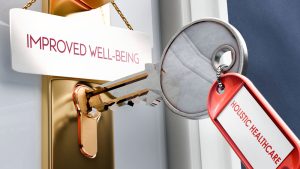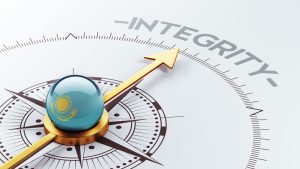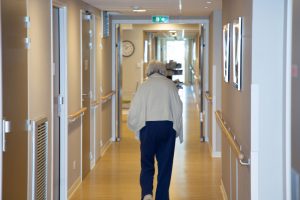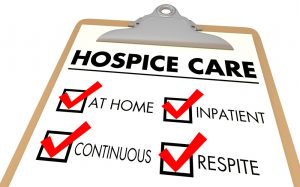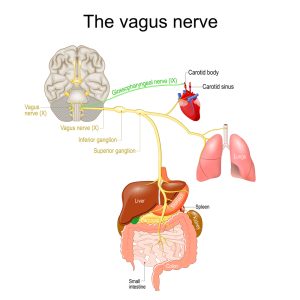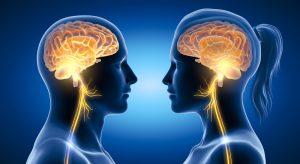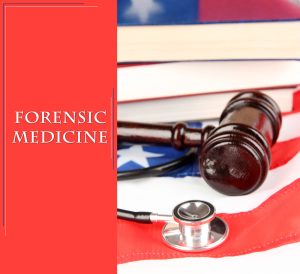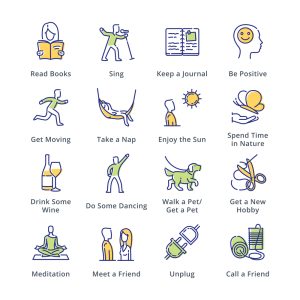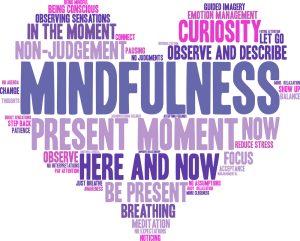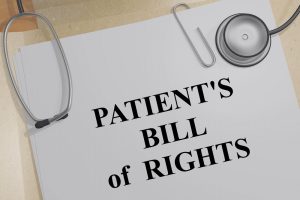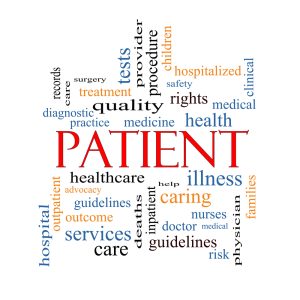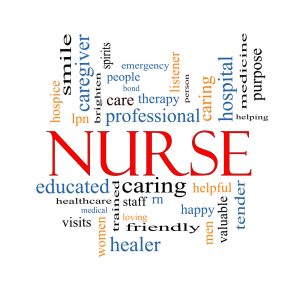By – James M. Katz, BA
In the healthcare industry, we often hear about the role of a case manager, but what does this position really entail? As someone who’s worked closely with case managers, I can tell you that their job is crucial in coordinating patient care and improving health outcomes. These professionals act as advocates, problem-solvers, and liaisons between patients, healthcare providers, and insurance companies. Their work has a significant impact on patient care management and the overall efficiency of healthcare systems.
Throughout this article, we’ll explore the many facets of a case manager’s role. We’ll look at how case management has evolved over time and examine the specific duties of hospital case managers. We’ll also discuss the tools and technologies used in case management programs, as well as the ethical considerations these professionals face daily. By the end, you’ll have a clear understanding of what case managers do in hospitals and other healthcare settings, and why their work is so important to patient care coordination and self-management.
The Evolution of Case Management
Historical Context
We can trace the roots of case management back to the late 19th and early 20th centuries. In the 1860s, settlement houses for immigrants and the poor utilized early forms of case management techniques. Around the same time, the first Board of Charities in Massachusetts was established, marking another early application of case management principles.
The role of a case manager began to take shape in the 1920s, emerging from the fields of psychiatry and social work. Initially, the focus was on managing long-term, chronic illnesses in outpatient, community-based settings. This approach laid the foundation for what would become a crucial aspect of healthcare case management.
In the early 1900s, public health nurses at Yale University School of Nursing implemented case management strategies, while social workers concurrently used care coordination techniques to link patients and families with available resources. These parallel developments in nursing and social work have continued to influence the modern practice of case management.
The 1930s saw visiting nurses adopting case management processes, with public health nursing models utilizing community-based approaches. This period marked a significant step in the evolution of the case manager role, as it began to encompass a broader range of healthcare settings and patient populations.
Modern Practices
The landscape of case management underwent a significant transformation in the 1980s with the introduction of the prospective payment system. This shift moved the model from community settings to acute care, hospital-based environments. Today, we find case management practices in virtually every healthcare setting across the continuum of care.
The 1990s brought about a major change in the healthcare industry, as it grew into a trillion-dollar business. This growth led to the development of hospital-based nurse case manager roles, focused on monitoring patient progress towards discharge. The core principle shifted to outcomes-driven care processes, a concept that continues to shape modern case management practices.
In recent years, we’ve seen a rapid evolution in case management practices due to various factors. The COVID-19 pandemic, for instance, has been a significant disruptor, pushing the industry to become more creative in healthcare delivery. This has led to an acceleration in telemedicine and home-based care, aiming to close gaps in care access.
Today’s case managers utilize a wide range of tools and technologies to improve their effectiveness. Interoperability between IT systems now allows seamless access to multiple sources of patient information, enabling the development of more individualized care plans. Wearable technology and healthcare apps have also become integral parts of modern case management, empowering consumers to better monitor and manage their own health.
As we look to the future, the role of a case manager continues to evolve. With high patient volumes and fewer staff, case managers and organizations are likely to rely more heavily on technology to help triage and prioritize cases. This shift towards data-driven approaches and outcome-driven metrics is shaping the future of case management, enabling more effective measurement and monitoring of care quality, health outcomes, cost containment, and stakeholder satisfaction.
Case Manager’s Role in Different Settings
We find that the role of a case manager varies significantly depending on the setting in which they work. Each environment presents unique challenges and responsibilities, requiring case managers to adapt their skills and approaches accordingly. Let’s explore how the role of a case manager differs across various healthcare settings.
Hospitals
In a hospital setting, case managers play a crucial role in coordinating patient care and ensuring efficient use of resources. Hospital case managers are often registered nurses who specialize in both utilization review and discharge planning. Their primary responsibilities include:
1. Assessing patients’ needs and developing comprehensive care plans
2. Coordinating care among various healthcare providers and specialists
3. Communicating with patients, families, and healthcare teams
4. Facilitating smooth transitions between different levels of care
5. Advocating for patients’ rights and ensuring quality care
One of the key aspects of a hospital case manager’s role is to work closely with health insurance companies. They act as intermediaries, ensuring that insurers have all the necessary information to approve payment for hospitalizations and prevent claim denials. Hospital case managers typically communicate with health insurers’ case managers on a daily or regular basis to keep them informed about patients’ progress and care needs.
Additionally, hospital case managers have a significant impact on resource allocation and cost management. They work to optimize care delivery while minimizing unnecessary expenses. For instance, they may negotiate coverage benefits between health insurers, providers, and patients to find cost-effective solutions that meet patients’ needs without compromising care quality.
Home Health
In the home health setting, case managers often take on a more hands-on role in patient care. Home health case managers are responsible for:
1. Developing and implementing personalized care plans
2. Coordinating services provided by other members of the healthcare team
3. Communicating with patients’ physicians and health insurance companies
4. Supervising visiting nurses and home health aides
5. Providing direct patient care and support
Home health case managers typically develop care plans with input from patients and their families. These plans are then presented to the patient’s physician for approval. Throughout the care process, case managers make necessary adjustments to the plan based on the patient’s progress and changing needs.
It’s important to note that while many home health case managers are nurses, some may have different professional backgrounds. When selecting a home health company, it’s crucial to understand whether they provide nursing care or only basic home assistance.
Community Organizations
Case management in community organizations focuses on connecting individuals with resources and services that improve their overall well-being. Community case managers work collaboratively to help clients navigate the social service system and access necessary support. Their responsibilities include:
1. Assessing clients’ needs and developing individualized care plans
2. Connecting clients with medical, clinical, and community services
3. Advocating for clients’ rights and access to resources
4. Coordinating care among multiple service providers
5. Monitoring clients’ progress and adjusting care plans as needed
Community case managers play a vital role in reducing healthcare costs by minimizing hospital stays, improving medication compliance, and helping clients return to work more quickly. They also work to prevent homelessness and ensure positive outcomes for their clients.
In conclusion, the role of a case manager is multifaceted and adapts to the specific needs of each healthcare setting. Whether in hospitals, home health, or community organizations, case managers serve as essential advocates, coordinators, and facilitators of care, working to improve patient outcomes and optimize resource utilization across the healthcare continuum.
Tools and Technologies in Case Management
We’ve seen a significant transformation in the tools and technologies used in case management over the years. As case managers, we’ve moved from paper-based systems to sophisticated digital solutions that enhance our ability to provide effective care coordination and improve patient outcomes. Let’s explore two key technological advancements that have revolutionized our field: Electronic Health Records (EHRs) and Care Coordination Software.
Electronic Health Records
Electronic Health Records have become an indispensable tool in our role as case managers. These digital versions of patients’ paper medical charts have greatly improved our ability to document patient information, ensure billing accuracy, and provide higher quality care. EHRs offer us quick access to patient records, enabling more coordinated and efficient care delivery.
One of the primary benefits of EHRs is the improvement in patient safety. By providing accurate, up-to-date, and complete information about patients at the point of care, we can make better-informed decisions and reduce medical errors. EHRs also enhance privacy and security of patient data, which is crucial in maintaining trust and compliance with regulations.
However, it’s important to note that EHRs have their limitations, especially when it comes to value-based care programs. Many EHRs are still designed to support the fee-for-service model, which can pose challenges as we transition to more value-based approaches. Additionally, the lack of interoperability between different EHR systems can hinder collaboration among healthcare providers treating the same patient.
Care Coordination Software
To address the limitations of EHRs and better support our role in care coordination, we’ve seen the emergence of specialized care coordination software. These tools are designed to complement EHRs and provide additional functionalities that are crucial for effective case management. Care coordination software offers several advantages over traditional EHRs. It allows for better interoperability, enabling us to share patient data and information across various EHR systems.
This improved data sharing enhances collaboration among providers, keeping the entire care team involved in the patient’s care and preventing miscommunications or duplication of work. One of the key features of care coordination software is its ability to prioritize care management tasks and automate processes like care plan creation. This automation significantly reduces the time we spend on manual data entry and compilation, allowing us to focus more on direct patient care. Moreover, care coordination software often provides more intuitive interfaces and better sorting and filtering features compared to EHRs. This makes it easier for us to access and update patient information across our entire caseload quickly and efficiently.
Another significant advantage is the integration of analytics and risk stratification capabilities. These features help us identify trends, assess patient risks, and make data-driven decisions to improve care outcomes. By aggregating data from multiple sources, care coordination software provides us with a comprehensive view of a patient’s health, enabling us to develop more effective, personalized care plans.
While care coordination software offers numerous benefits, it’s important to remember that it’s not a replacement for EHRs. Instead, it serves as a complementary tool that enhances our ability to manage patient care under value-based models. By leveraging both EHRs and care coordination software, we can provide more efficient, effective, and patient-centered care.
As case managers, embracing these technological advancements is crucial for improving our efficiency, enhancing patient outcomes, and adapting to the evolving healthcare landscape. However, we must always remember that technology is a tool to support our critical thinking and human relationships, not replace them.
Ethical Considerations
As case managers, we face numerous ethical challenges in our daily practice. Our role requires us to navigate complex situations while upholding the highest standards of patient care and professional conduct. Let’s explore some key ethical considerations that shape our work.
Patient Privacy
Protecting patient privacy is a cornerstone of ethical case management. We must adhere to strict privacy regulations, such as the Health Insurance Portability and Accountability Act (HIPAA). This law ensures that patients’ protected health information (PHI) remains confidential and secure.
In our role as case managers, we often have access to sensitive patient information. It’s crucial that we only disclose this information when necessary for treatment, payment, or healthcare operations. We must be cautious even in casual conversations, as discussing patient details in public areas or with unauthorized individuals can lead to privacy breaches.
When communicating with family members or friends of a patient, we must obtain the patient’s permission or use our professional judgment to determine if the disclosure is in the patient’s best interest. This is particularly important in mental health cases, where privacy concerns are often heightened.
Informed Consent
Obtaining informed consent is a critical ethical responsibility for case managers. This process involves educating patients about the risks, benefits, and alternatives of proposed interventions or treatments. It’s not just about getting a signature; it’s about ensuring that patients truly understand and voluntarily agree to their care plan.
As case managers, we play a vital role in facilitating informed consent. We must ensure that patients receive clear, understandable information about their care options. This includes explaining complex medical terms in plain language and addressing any questions or concerns patients may have.
It’s important to note that informed consent is an ongoing process. We must continually assess patients’ understanding and provide updated information as their care progresses. In cases where patients lack the capacity to make decisions, we must work with their legally authorized representatives to obtain informed permission.
Cultural Competence
Cultural competence is essential in our role as case managers. We serve diverse patient populations with varying beliefs, values, and practices. To provide effective, equitable care, we must develop cultural awareness and sensitivity.
Cultural competence goes beyond just recognizing differences. It involves actively working to understand and respect patients’ cultural backgrounds and how they influence healthcare decisions. This might mean adapting our communication style, considering alternative treatment approaches, or involving cultural mediators when necessary.
As case managers, we must also be aware of our own cultural biases and how they might affect our interactions with patients. Practicing cultural humility – recognizing the limits of our knowledge about others’ cultures – is crucial in building trust and rapport with patients from diverse backgrounds.
In conclusion, ethical considerations are at the heart of effective case management. By prioritizing patient privacy, ensuring informed consent, and practicing cultural competence, we can uphold the highest ethical standards in our role as case managers. These principles not only guide our decision-making but also help us provide patient-centered care that respects individual rights and promotes positive healthcare outcomes.
Impact on Healthcare Outcomes
As case managers, we play a crucial role in improving healthcare outcomes across various dimensions. Our work has a significant impact on cost reduction, patient satisfaction, and overall health improvements. Let’s explore how our role as case managers contributes to these important aspects of healthcare.
Cost Reduction
One of the primary goals of case management is to optimize resource utilization and reduce healthcare costs. By coordinating care and integrating services across different providers and settings, we help close care gaps and minimize areas of conflict in the delivery of care. This approach has led to notable reductions in healthcare utilization and associated costs.
Studies have shown that case management interventions can effectively reduce hospital readmissions, emergency department visits, and unnecessary institutionalization. By prioritizing the most urgent and important cases that require immediate attention, we can focus our efforts where they’re needed most, leading to more efficient use of healthcare resources. The implementation of case management programs has demonstrated cost-effective and, in many cases, cost-saving results. For instance, by optimizing patient processes, we can reduce hospital bed costs associated with inpatient overstay. This not only benefits healthcare organizations but also contributes to the overall sustainability of the healthcare system.
Patient Satisfaction
Our role as case managers significantly contributes to enhancing patient satisfaction. By providing personalized care coordination and support, we help patients navigate complex healthcare systems more effectively. This leads to improved experiences of care and higher consumer satisfaction.
One key aspect of our work that impacts patient satisfaction is our focus on patient engagement. We empower clients to become active participants in their own care management, motivating them to manage their health and reduce dependence on case management services. This approach not only improves patient outcomes but also enhances their overall satisfaction with the healthcare process.
Studies have shown strong evidence that case management improves adherence to treatment guidelines and patient satisfaction. By offering emotional and informational support, educating patients about their care plans and rights, and empowering them to advocate for themselves, we create a more positive healthcare experience for our clients.
Health Improvements
The ultimate goal of our work as case managers is to improve the health outcomes of individuals and populations. Through our comprehensive approach to care coordination, we contribute significantly to this objective. Case management interventions have been shown to favorably affect healthcare utilization outcomes in chronic illness care. By developing personalized care plans centered around the patient’s needs, goals, and measurable outcomes, we help ensure that patients receive the most appropriate and effective care for their specific conditions.
Our role in promoting safe and efficient transitions of care is critical to reducing readmission rates and improving the quality of patient care. We regularly evaluate disease control and management, the effectiveness of the care plan, and the patient’s self-management capabilities. This ongoing assessment allows us to make timely adjustments to care plans, ensuring optimal health outcomes.
Moreover, by leveraging advancements in technology such as artificial intelligence and data analytics, we can monitor progress, evaluate outcomes, and make data-driven decisions to improve care. This approach enables us to provide more targeted and effective interventions, ultimately leading to better health outcomes for our patients.
In conclusion, our role as case managers has a profound impact on healthcare outcomes. Through our efforts in cost reduction, enhancing patient satisfaction, and improving overall health, we contribute significantly to the goals of value-based care and the Quintuple Aim in healthcare. As we continue to refine our practices and embrace new technologies, we can further enhance our ability to positively influence healthcare outcomes and improve the lives of the patients we serve.
Conclusion
The role of a case manager has a significant influence on the healthcare system, bridging gaps between patients, providers, and insurers. These professionals play a crucial part in coordinating care, optimizing resource use, and improving patient outcomes. Their work spans various settings, from hospitals to community organizations, adapting to meet the unique needs of each environment. By leveraging modern tools and technologies, case managers enhance their ability to deliver efficient, patient-centered care.
At its core, case management is about advocating for patients and ensuring they receive the best possible care. This involves navigating complex ethical considerations, such as protecting patient privacy and obtaining informed consent. As the healthcare landscape continues to evolve, the impact of case managers on cost reduction, patient satisfaction, and overall health improvements becomes increasingly clear. Their role is essential to achieve the goals of value-based care and to improve the overall quality of healthcare delivery.
If you’re a healthcare professional, our certification program in case management might be right for you. Our program consists of 5 online case management courses. Once complete you would become certified in case management with a fellowship status for a period of 4 years. For full details on the Case Management certification program, please go here.
Research Articles:
Investigating a novel population health management system to increase access to healthcare for children: a nested cross-sectional study within a cluster randomised controlled trial. Cecil E, Forman J, Newham J, et al. BMJ Quality & Safety Published Online First: 11 July 2024.
Access link here
Active case finding with case management: the key to tackling the COVID-19 pandemic. Li, ZhongjieLi, Zhongjie et al. The Lancet, Volume 396, Issue 10243, 63 – 70
Access link here
Pediatric Preventive Care: Population Health and Individualized Care. Edward L. Schor, MD; David Bergman, MD, Et Al. American Academy of Pediatrics. Volume 148, Issue 3 September 2021
Access link here
Sustainability of an Interprofessional Collaborative Practice Model for Population Health. Shirey, Maria R. PhD, Et Al. Nursing Administration Quarterly 44(3):p 221-234,
Access link here



